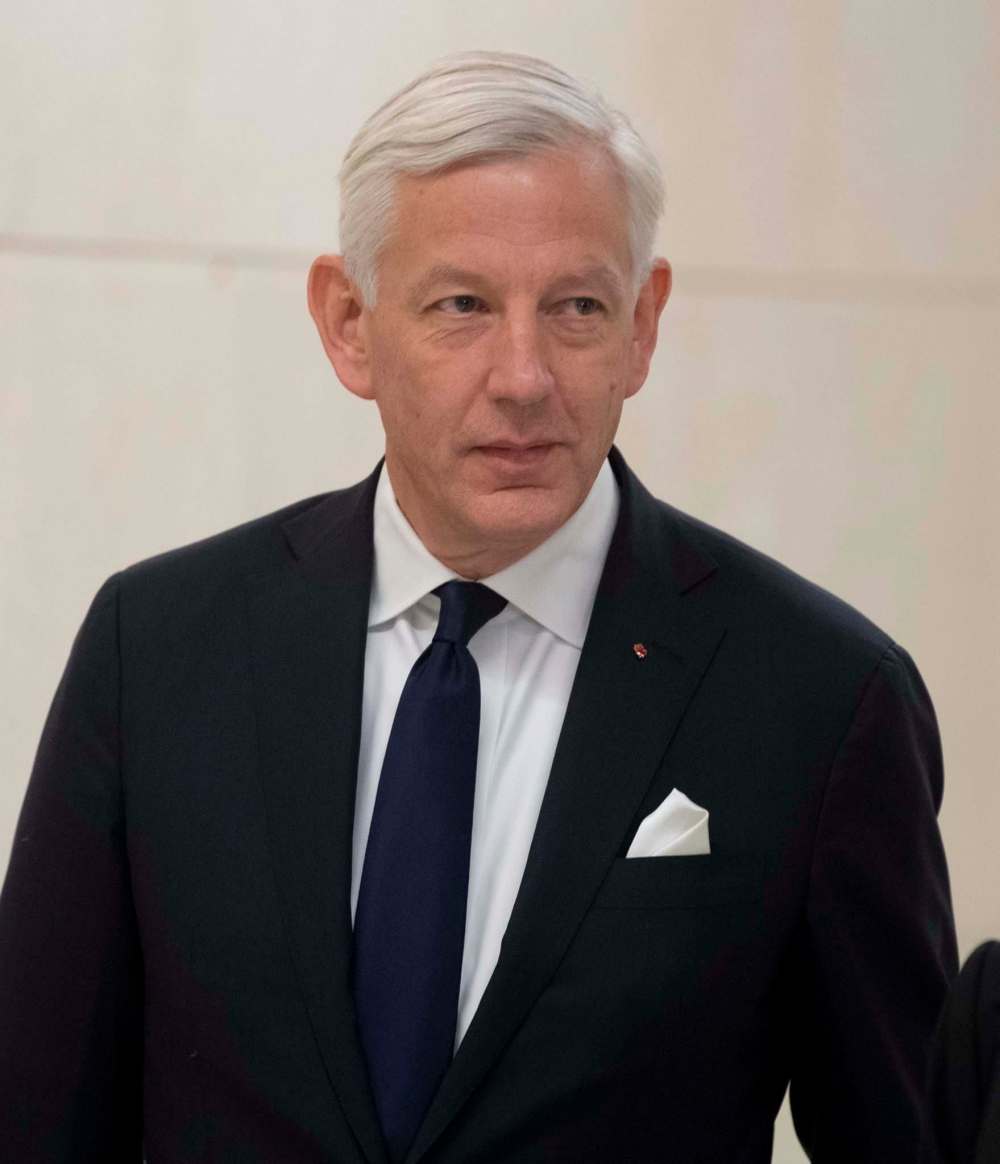Deal-seeking effort might validate hostage-taking
Read this article for free:
or
Already have an account? Log in here »
To continue reading, please subscribe:
Monthly Digital Subscription
$0 for the first 4 weeks*
- Enjoy unlimited reading on winnipegfreepress.com
- Read the E-Edition, our digital replica newspaper
- Access News Break, our award-winning app
- Play interactive puzzles
*No charge for 4 weeks then price increases to the regular rate of $19.00 plus GST every four weeks. Offer available to new and qualified returning subscribers only. Cancel any time.
Monthly Digital Subscription
$4.75/week*
- Enjoy unlimited reading on winnipegfreepress.com
- Read the E-Edition, our digital replica newspaper
- Access News Break, our award-winning app
- Play interactive puzzles
*Billed as $19 plus GST every four weeks. Cancel any time.
To continue reading, please subscribe:
Add Free Press access to your Brandon Sun subscription for only an additional
$1 for the first 4 weeks*
*Your next subscription payment will increase by $1.00 and you will be charged $16.99 plus GST for four weeks. After four weeks, your payment will increase to $23.99 plus GST every four weeks.
Read unlimited articles for free today:
or
Already have an account? Log in here »
Hey there, time traveller!
This article was published 07/06/2021 (1650 days ago), so information in it may no longer be current.
Dominic Barton, Canada’s ambassador to China, made the rounds of top government offiicials in Washington in early April asking the administration of U.S. President Joe Biden to negotiate release of the Chinese telecom executive Canada is holding on their behalf. That, at least, is the account given to the Globe and Mail by three unnamed sources.
The ambassador was also asking the Biden administration to add some intensity to its pressure on the Chinese government for release of Michael Kovrig and Michael Spavor, two Canadians detained by Chinese police. China detained the two Canadians in December 2019, immediately after Canada, at the request of the U.S. government, detained Huawei Technologies chief financial officer Meng Wanzhou as she changed planes in Vancouver.

China is holding the two Michaels as hostages to compel Canada to release Ms. Meng. Prime Minister Justin Trudeau insisted the British Columbia court that is hearing the U.S. government’s extradition request should complete its process without interference by his government. This is to uphold the principle that Canada does not yield to hostage-taking, Mr. Trudeau said, and is intended to preserve the safety of other Canadians who might be detained in future on account of a dispute among governments.
If Canada is in fact urging the U.S. to let Ms. Meng off lightly to win early release of the two Michaels, that is a success already for China’s hostage-taking tactics. By holding the two Canadians in prison for two and a half years, the Chinese authorities have seemingly compelled Canada to intercede on China’s behalf with the U.S. administration.
With U.S. backing, Canada in February organized a joint declaration against arbitrary detention, ultimately signed by 60 governments. The declaration did not name China, but the Chinese government reacted angrily because they knew perfectly well it was aimed at them.
The joint declaration showed that China has suffered damage to its world reputation by imprisoning Michael Kovrig and Michael Spavor. It also showed that support for Canada’s position is concentrated among the industrial democracies. Developing countries hoping to cash in from China’s Belt and Road program of infrastructure investment were unwilling to object to arbitrary detention.
The hard-hearted defence against hostage-taking would be to show total indifference – hold a public farewell for the hostages, treat them as already sacrificed and make no gesture in aid of winning their release. This would tell the hostage-takers that they have won no leverage. Canada would never do that, because the hostages’ families and the Canadian public would not stand for it.
The other way is to offer inducements for release of the hostages while inflicting penalties for their continued detention. Canada’s efforts along these lines have not yet achieved any discernible benefit for the two Michaels.
Canada and the U.S. should continue lining up new signatories for the February joint declaration against arbitrary detention. A sense of spreading world condemnation of China’s cruelty might eventually persuade China’s Communist Party masters that hostage-taking is more trouble than it is worth.
The search for inducements, however, is more dangerous. If Canada is lobbying the U.S. to cut a deal for the release of Meng Wanzhou in the hope of winning release of the two Michaels, China may easily conclude that imprisoning them was the correct move.
Canada may be tiptoeing toward the conclusion that hostage-taking actually works. If that is the way we are going, Canadians in China should be warned that they may be the next targets.






.jpg?h=215)
